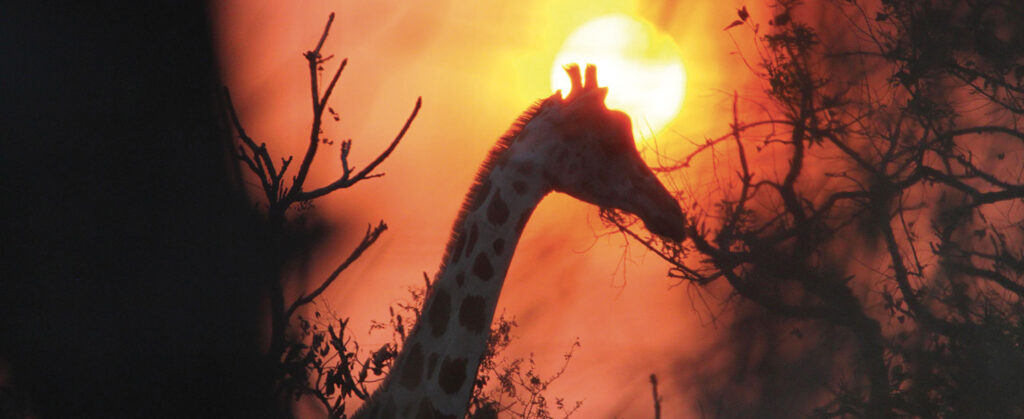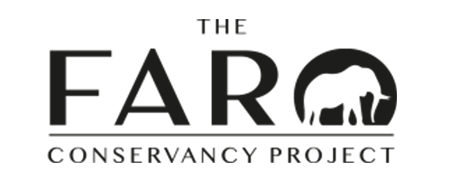Wildlife Conservation
Prejudices will be shattered


For almost two decades, Nokia had unquestionably dominated the cell phone market. In the 2000s, the iconic 3210 and 3310 had sold over 286 million units. The Finnish brand’s steady success was phenomenal, yet in 2007, a new generation of smartphones shook up the established order. Nokia failed to take the smartphone turn and lost almost forty-five percent of its market share in just 6 years, dropping from forty-nine percent in 2007 to less than five percent in 2013 — an extraordinary failure to adapt to a changing world.
While mankind often strives to maintain long-held paradigms, the reality is that we exist in a world governed by rapid dynamism. In like manner to Nokia, if we hunters take too much time to identify a problem, to define it at least partially, and to plan the implementation of activities to solve it, then we may end up answering a question that has already become obsolete by the time we even identify it. It’s essential that we adapt and stay ahead of the curve to develop a web of conjectures to anticipate the metamorphoses of pressures that force themselves upon the natural world, and provide structural, systemic, and sustainable solutions to our most complex questions and problems. Our world is dynamic, our passions are dynamic, just as the Professional Hunter’s or conservationist’s role is dynamic.
Historically, the Professional Hunter was involved in what we would consider to be the basics of the hunting industry: the creation or maintenance of hunting roads and salt licks, building river fords, the management of pasturelands and bush fires, the construction and maintenance of lodges, equipment and vehicles, hospitality, logistics, and client marketing. The PH or guide focused on the selective harvesting of animals during hunts, the supervision of field teams and anti-poaching activities, or more generally, defended conservation areas from illegal invasion of crops, livestock and so much more.
But, beyond the privilege of experiencing untamed nature whilst tracking a majestic trophy, we can no longer ignore the fact that there is more that plays a consequential role on ecosystem mechanisms. These consequences can be positive or negative. So, it’s up to all of us — hunters, companions, guides, protected area managers, and booking agents — to express our shared passion by stewarding nature’s diversity with dynamic creativity and ingenuity.
For more than fifty years, my family has been focused on the management of what takes place within the borders of our protected hunting area in Cameroun: what is inherent to the activity of sport hunting on the one hand, and the management of conflicts-of-use on the other hand — poaching, unauthorized gold mining, illegal livestock invasions, unsustainable logging, uncontrolled fishing, invasive agriculture, and more.
These conflicts-of-use are part of the bigger dynamic — the very real consequences of what is happening in the larger world outside of our protected borders. Most of us have grown weary of the slumbering governments and the ignorance of too many well-meaning (or not so well-meaning) NGOs, not to mention the misinformation propagated by the media or from the politicians who are supposed to represent us. But who better than our worldwide hunting community to be the new educators of those who don’t understand the dynamics we face?
There is a vital and urgent need for us to finally master solution-based advocacy. Raising awareness won’t happen on its own, and certainly won’t without our active participation. Governments often lack the will and funding to do so. International NGOs and civil society organizations usually lack the knowledge and experience, while those of us with a will and desire to do so often lack the resources and structure to implement the solutions successfully. This equation remains insoluble if we continue to isolate capable players by maintaining outdated paradigms. In other words, we can’t allow ourselves to become silo-ed. It’s time to organize a consortium of key players to navigate the latitudes of some parties while circumventing the limits of others. We need to build the new bridges that will enable the public and private worlds to come together to rethink, unite and professionalize the conservation sector. That’s what tomorrow’s Professional Hunters and realistic conservationists are all about.
Granted, there are a number of organizations and associations already in existence that have begun to do this well — some regionally and others nationally or internationally. Let’s keep the creative, collaborative momentum going. With greater pressures facing our beloved wild places than ever before, collaborative unity and clearly defined common goals are our only hope.
Our world is dynamic. It’s up to us to reshape the next conservation paradigm for the sanctuaries we so cherish and to protect the animal species that are their raison d’être. The alternative is to follow in the footsteps of Nokia, Moulinex, or the woolly Mammoth and to become spectators of our own demise. Rather, let us be like Kodak or Polaroid, and be so bold as to re-invent ourselves to again become relevant in an ever changing world.
We have created two tools to educate and bring people together:

1/ The HUNTERSACT label,
because we are convinced that it is the responsibility of hunting industry professionals and their customers to make a lasting contribution to the preservation of protected areas and animal species.
Our partners (in Zambia, Mozambique, Zimbabwe, Chad, Congo, Ethiopia, Tanzania, Uganda, Botswana and Namibia) share this vision and meet rigorous selection criteria (hunting ethics, quality of service, contribution to conservation, etc.).
HOW DOES IT WORK?
Book your next sustainable hunting trip in a partner destination and we share our 15% commission as follows: 5% immediate discount on your trip to thank you for your commitment, 5% with the hunting operator who commits to carrying out additional conservation activities, and 5% with our non-profit association The Faro Conservancy Project who commits to using them to carry out conservation activities in Cameroon.
1/ The HUNTERSACT label,
because we are convinced that it is the responsibility of hunting industry professionals and their customers to make a lasting contribution to the preservation of protected areas and animal species.
Our partners (in Zambia, Mozambique, Zimbabwe, Chad, Congo, Ethiopia, Tanzania, Uganda, Botswana and Namibia) share this vision and meet rigorous selection criteria (hunting ethics, quality of service, contribution to conservation, etc.).
HOW DOES IT WORK?
Book your next sustainable hunting trip in a partner destination and we share our 15% commission as follows: 5% immediate discount on your trip to thank you for your commitment, 5% with the hunting operator who commits to carrying out additional conservation activities, and 5% with our non-profit association The Faro Conservancy Project who commits to using them to carry out conservation activities in Cameroon.

2/ The Faro Conservancy Project (TFCP)
is a consortium of protected area managers in Northern Cameroon, keen to reshape wildlife conservation based on real needs observed in the field.
Our unique involvement, often at the heart of conflicts, makes us key players in the conservation of species present in the territories we have been protecting for decades.
Thanks to over 50 years’ experience in the field, our rigorous protection, in-depth knowledge and boundless passion, we are the guardians of an extraordinary diversity of wildlife and essential habitats.
This credibility enables us to develop structured responses that directly target observed conflicts and the imbalances they cause.
In Cameroon, our long-term sanctuaries are the last refuges of World Wildlife Heritage.
2/ The Faro Conservancy Project (TFCP)
is a consortium of protected area managers in Northern Cameroon, keen to reshape wildlife conservation based on real needs observed in the field.
Our unique involvement, often at the heart of conflicts, makes us key players in the conservation of species present in the territories we have been protecting for decades.
Thanks to over 50 years’ experience in the field, our rigorous protection, in-depth knowledge and boundless passion, we are the guardians of an extraordinary diversity of wildlife and essential habitats.
This credibility enables us to develop structured responses that directly target observed conflicts and the imbalances they cause.
In Cameroon, our long-term sanctuaries are the last refuges of World Wildlife Heritage.
Wildlife conservation is not a cause. It’s not something you decide to do or not to do. Wildlife conservation is a NEED. An urgent need.
In Cameroon, we already have the support of major international NGOs such as AWF, WCS, Noé and Conserve Global, as well as micro-funding from the French IUCN Committee.
Follow our conservation adventures and take part in one of the greatest battles of our century.
Discover how our Non-Profit Organization « The Faro Conservancy Project » combats poaching
in Cameroon, and how you can support us in the field !
Discover how our Non-Profit Organization
« The Faro Conservancy Project » combats poaching in Cameroon, and how you can support us in the field !
Suggested Articles:


4th January 2023 | in Wildlife Conservation | by Xavier Vannier
DIGITALIZATION OF ANTI-POACHING
Poachers, gold seekers, woodcutters, cattle herders and illegal fishermen all share one thing in common. When they spot our anti-poaching units, they immediately run!

18th December 2022 | in Wildlife Conservation | by Xavier Vannier
THE NORTHERN LION IN IMMEDIATE DANGER
The Northern lion, Panthera leo leo, is in immediate danger of extinction in Cameroon and across the rest of their range. In 2023, it is estimated that there is less than 400 West African lions left in the wild…

5th November 2022 | in Wildlife Conservation | by Xavier Vannier
THE 3 WILDLIFE CONSERVATION PILLARS
Without a global and integrated approach, we will only postpone the degradation of the Protected Areas and the animal species that are their raison d’être, and which constitute a unique World Wildlife Heritage…


